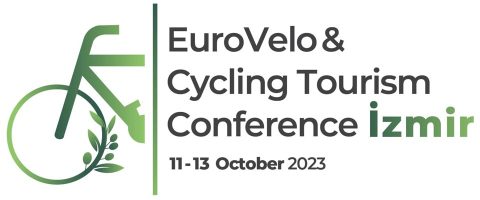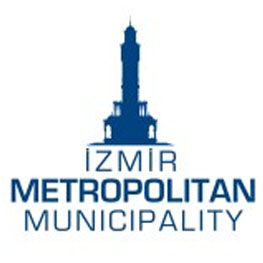Theme
Cycling: a New Perspective on Heritage
Cycling is the ideal way to experience heritage – be it natural or cultural, tangible or intangible. As there is momentum for cycling in Europe, how does it impact heritage? The EuroVelo & Cycling Tourism Conference 2023 in Izmir is the best place to discuss the opportunities of combining cycling and heritage for the benefit of local users and tourists.
The EuroVelo & Cycling Tourism Conference 2023 takes place from 11 to 13 October, bringing together cycling, tourism and heritage experts and stakeholders from Europe and beyond. By exploring the theme ‘Cycling: a new perspective on heritage’, the Conference encourages participants to consider the role of cycling in shaping cultural and natural heritage and boosts debate on best practices and innovative approaches.
Heritage reflects what is the most unique to a location and the region of Izmir is a perfect example, with its 8,500 years of history and the UNESCO World Heritage Sites of Ephesus and Pergamon. Cycling can enhance these assets with its numerous positive impacts on the local economy, health and environment. The creation of cycling infrastructure and tourism products reinvents a destination, expands access to heritage and creates new bonds between locals and visitors. Cycling creates new urban and rural landscapes, while bike manufacturing is part of industrial heritage, and events bring cycling communities together for social inclusion. However, special care is required: attracting visitors to natural areas should promote biodiversity and minimise impact on ecosystems, tourism flows should be spread across different heritage sites to avoid over-tourism and cycling-friendly services should be offered to promote access.
As new cyclists emerge after the pandemic and challenges grow differently in rural and urban areas, the EuroVelo & Cycling Tourism Conference offers a fresh perspective on heritage by looking at the world through the lens of cycling and exploring the many ways in which cycling contributes to our cultural and natural heritage.
Subthemes
The EuroVelo & Cycling Tourism Conference 2023 has four subthemes:
Cycling culture: ideas to attract new users
Could a ‘culture of the bicycle’ convince new users and young generations to cycle in their daily life and for their holidays? Cycling is fun, accessible, and comes with a feeling of freedom. In the quest to make cycling a part of everyone’s life, it is crucial to motivate new cyclists and young people to join the community. How innovations or technologies are related to the cycling culture? How do marketing and communication initiatives support the growth of cycling for leisure and tourism? How can sport, road, mountain or gravel biking contribute to an inclusive image of cycling?
Cycling into nature: between usage and protection
Cycling through a landscape is one of the best ways of discovering it, but combining cycling and nature is a delicate matter. How can cycling infrastructure give access to natural areas without adding pressure on biodiversity and ecosystems? How to raise awareness of natural preservation? How does cycling create new landscapes, be they rural or urban? Challenges such as the adaptation to climate change, the construction of cycling-friendly infrastructure in protected areas and the lack of natural attractivity in densely-populated districts are not always easy to face, but solutions and innovations exist.
Discovering cultural and historical heritage by bicycle: opportunities and challenges
Dedicated services for cyclists can bring numerous visitors – bicycle boxes for visitors of a castle, discounted entrance fees for active mobility visitors in a museum, cycling infrastructure to access an archaeological site, and more. Which experiences are the most attractive for cyclists? How to improve thematic cycling tours? How to encourage visitors to come by bike? What are the basic needs of cyclists when visiting a historic landmark? Cycling is a unique and immersive way to experience tangible and intangible heritage if dedicated offers are developed.
Cycle route networks: a link between rural and urban heritage
A successful cycle route network connects the main attractions of a destination and other means of transport in a direct, attractive and safe way. How to plan a long-distance cycle route together with local itineraries? From densely populated cities to rural areas, several infrastructure parameters must be considered to fit the users’ needs, be they daily commuters, cycling tourists, or leisure cyclists. What makes a multi-scale project a success? How to connect local and European priorities? How to involve all stakeholders, including private ones? From designation to maintenance, planning is key for quality cycling offers.




